SHOWCASE @laurahird.com
For Kara's story, 'Mermaids' click here; to read Kara's story, 'A Winter's Tale' click here, for a selection of Kara's film, book and music reviews on The New Review section of the site, click here or to read Kara's latest showcased story, click here
|
Kara Kellar Bell is a film and media graduate from the West of Scotland, with a passion for European novels, European and Asian films, silent cinema, and Brazilian music. As a writer, she likes to have room to move around creatively, so she�s not rooted in one genre. She writes realism and stories of a more fantastic nature, usually grounded to some extent in the real world. �Songs of Contentment Ended� originally appeared in QWF magazine in 2004. Other stories have appeared in Bonfire, The Gay Read, The Orphan Leaf Review, Aesthetica, Open Wide, Whispers of Wickedness, the Showcase at laurahird.com, and elsewhere. She hopes to finish her novel, a literary thriller, sometime this year. Kara�s message board can be found here KARA'S FAVOURITE SHORT STORY COLLECTIONS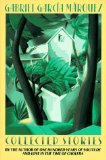 COLLECTED STORIES - Gabriel Garcia Marquez COLLECTED STORIES - Gabriel Garcia Marquez"Includes the wonderful magic realist story 'The Last Voyage of The Ghost Ship,' written in one sentence over five pages, and another favourite, 'Monologue of Isabel watching It Rain in Macondo'" Click image to visit Macondo, the Garcia Marquez pages on The Modern World site; for a profile and links on the Levity website, click here or to order the book, click here 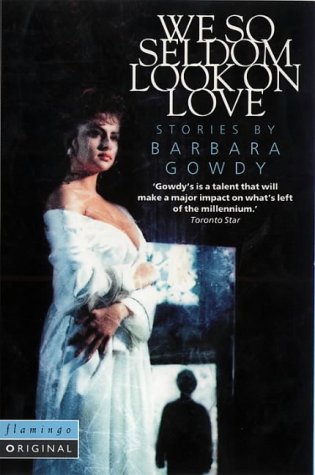 WE SO SELDOM LOOK ON LOVE - Barbara Gowdy WE SO SELDOM LOOK ON LOVE - Barbara Gowdy"The title story was made into the film, 'Kissed,' with Molly Parker" Click image for an author profile and review of the book on the Literary Moose website; for an interview with Gowdy on the Reading Groups website, click here or to order the book, click here  SYMMETRIES - Luisa Valenzuela SYMMETRIES - Luisa Valenzuela"Great Argentinian writer" Click image to read Evelyn Picon Garfield's interview with Valenzuela on the Center for Book Culture website; for Valenzuela's 2002 article on the Guardian Unlimited website, click here or to order the book, click here 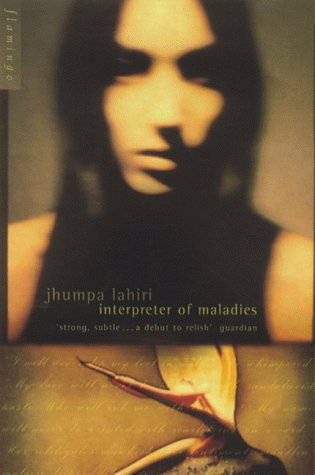 THE INTERPRETER OF MALADIES - Jhumpa Lahiri THE INTERPRETER OF MALADIES - Jhumpa Lahiri"Fantastic debut collection, winner of Pulitzer and Pen-Hemingway. " Click image for an author profile and links on the Sawnet site; for Arun Aguiar's interview with Lahiri on the Pif magazine site, click here or to order the book, click here  I SWEEP THE SUN OFF ROOFTOPS - Hanan Al-Shaykh I SWEEP THE SUN OFF ROOFTOPS - Hanan Al-Shaykh"Beautiful, funny, sensual stories about women from the Lebanese writer." Click image to read Pascale Ghazaleh's profile of Al-Shaykh on the Al Ahram Weekly website; for a biography of Al-Shaykh on the Lebanese Women's Association site, click here or to order the book, click here 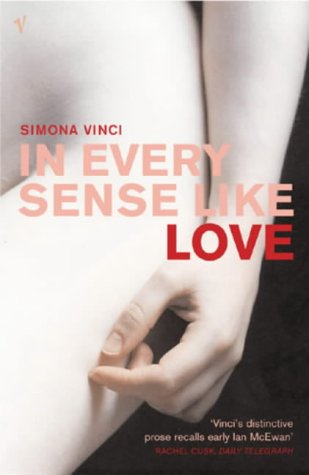 IN EVERY SENSE LIKE LOVE - Simona Vinci IN EVERY SENSE LIKE LOVE - Simona Vinci"Quirky Italian collection by the controversial author of A Game We Play." Click image for Jackie Cohen's review of the book on the SFBG website; for Daniel Mendelsohn's review of Vinci's novel, 'What We Don't Know About Children' on the New York Metro site, click here or to order the book, click here 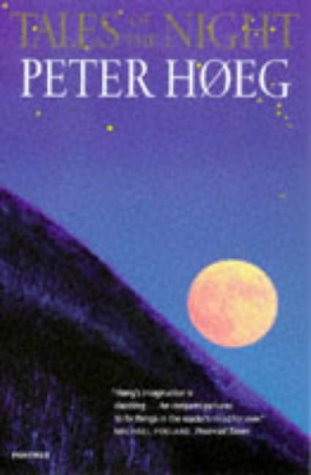 TALES OF THE NIGHT - Peter Hoeg TALES OF THE NIGHT - Peter Hoeg"A collection of stories all set on the same night of the year." Click image for a biography, bibliography and interview with Hoeg on the MTS website; for a profile of Hoeg on the Literary Moose site, click here or to order the book, click here 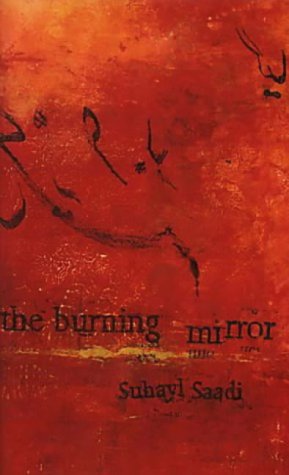 THE BURNING MIRROR - Suhayl Saadi THE BURNING MIRROR - Suhayl Saadi"Scottish writer mixing Asian and Scottish settings, characters and themes." Click image to read Saadi's story, 'Bandanna' on the Barcelona Review website; to read Saadi's story, 'Extra Time' on the Showcase section of this site, click here or to order the book, click here  BLOW-UP AND OTHER STORIES - Julio Cortazar BLOW-UP AND OTHER STORIES - Julio Cortazar"Features amongst other things, the title story that inspired Antonioni's famous '60's film." Click image for a biography and related links on the Subir website; for a profile of Cortazar on the Literary Moose site, click here or to order the book, click here KARA'S MAJOR INSPIRATIONS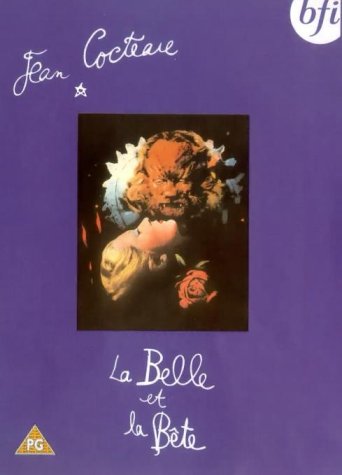 COCTEAU'S 'LA BELLE ET LA BETE' COCTEAU'S 'LA BELLE ET LA BETE'Click image for website relating to Jean Cocteau's classic film , "La Belle Et La Bete," which Karen describes as 'a wonderful
work of fantasy, without CGI graphics,' or to view the film on Amazon, click
here
J W WATERHOUSE For official website dedicated to the master of Romantic Classicism, J W Waterhouse, click title, or to view related books on Amazon, click here  PRE-RAPHAELITE ART PRE-RAPHAELITE ARTClick image for an overview of the English, Pre-Raphaelite artists, Edward Burne-Jones, or for Penelope Fitzgerald's biography of the artist on Amazon, click
here FRANCIS MACDONALD Click image for Haiti Arts webpages on Margaret and Francis Macdonald and the Glasgow Style movement, or for related books on Amazon, click here KARA'S FAVOURITE BOOKS 1. 'THE SECRET HISTORY' by Donna Tartt 1. 'THE SECRET HISTORY' by Donna TarttClick image to visit the Donna Tartt Shrine which includes news, bio, bibliography, translations, non-fiction, writings, press, reviews, photo gallery, message board, chat, polls, downloads, or to read about 'The Secret History' on Amazon, click here  'THE GREAT GATSBY - F Scott Fitzgerald 'THE GREAT GATSBY - F Scott FitzgeraldPicked by Karen due to it having the best last page
in literary history, and the best description of a party. For the official website of The F Scott Fitzgerald Society, click image or to view 'The Great Gatsby' on Amazon, click here 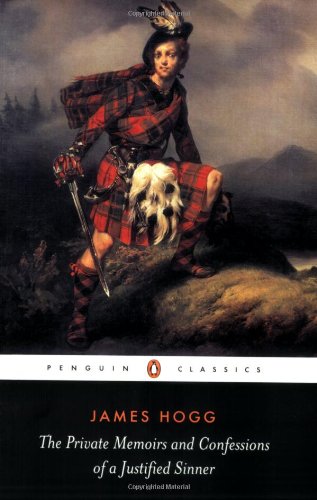 'THE PRIVATE MEMOIRS AND CONFESSIONS OF A JUSTIFIED SINNER' by James Hogg 'THE PRIVATE MEMOIRS AND CONFESSIONS OF A JUSTIFIED SINNER' by James HoggPicked by Karen for being just as relevant today in what it says about the dangers of fanaticism. Click image to visit the website of The James Hogg Society, or to view 'The Private Memoirs and Confessions of a Justified Sinner' on Amazon, click here  'THE LOVER' by Marguerite Duras 'THE LOVER' by Marguerite DurasPicked by Karen for its beautiful, poetic passages of prose. To read about Marguerite Duras in the Label France magazine website, click image, or to view 'The Lover' on Amazon, click here  'THE BUTCHER' by Alina Reyes 'THE BUTCHER' by Alina ReyesTo read the essay, 'Alina Reyes�s Entre-deux writing of the erotic female body' click image, or to view 'The Butcher' on Amazon, click here 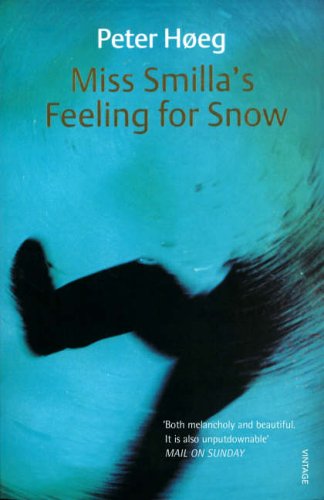 6. 'MISS SMILLA'S FEELING FOR SNOW' by Peter H�eg 6. 'MISS SMILLA'S FEELING FOR SNOW' by Peter H�eg For biography, bibliography, interview and other Peter H�eg related links, click image, or to view 'Miss Smilla's Feeling For Snow' on Amazon, click here 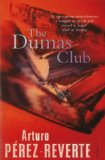 7. 'THE DUMAS CLUB' by Perez-Reverte 7. 'THE DUMAS CLUB' by Perez-Reverte Click image to read about Arturo Perez-Reverte on the Freelance Spain website, or to view 'The Dumas Club' on Amazon, click here 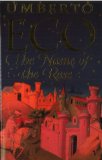 8. 'THE NAME OF THE ROSE' by Umberto Eco 8. 'THE NAME OF THE ROSE' by Umberto EcoFor intensive look at Umberto Eco and his work on The Modern World website, click image, or to view 'The Name of the Rose' on Amazon, click here 9. 'THE HAUNTED WOMAN' by David Lindsay To read about Scots/English writer David Lindsay on Slainte - the Scottish Writing website, click image, or to view 'The Haunted Woman' on Amazon, click here KARA'S FAVOURITE BRAZILIAN ALBUMS BEBEL GILBERTO - 'Tanto Tempo' BEBEL GILBERTO - 'Tanto Tempo'"New Bossa to die for" - Click image to visit the official Bebel Gilberto website; for discography, message board, tour news and sound clips on VH1.com, click here or to view 'Tanto Tempo' on Amazon, click here 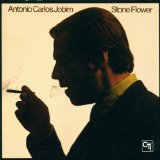 ANTONIO CARLOS JOBIM - 'Stone Flower' ANTONIO CARLOS JOBIM - 'Stone Flower'"Classic Bossa from one of the great Brazilian popular music composers and performers" - Click image to visit Clube do Tom, the official Brazillian website of Antonio Carlos Jobim; for discography and biography on the Verve Records site, click here or to view 'Stone Flower' on Amazon, click here  DANIELA MERCURY - 'Feijao Com Arroz' DANIELA MERCURY - 'Feijao Com Arroz'"A wonderful album with a mix of sounds from an energetic performer" - Click image to visit the official Brazilian Daniela Mercury website (in translation); to read reviews of Mercury's albums on Warr.org, click here or to view and listen to sound clips from 'Feijao Com Arroz' on Amazon, click here 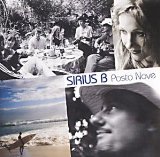 SIRIUS B - 'Posto Nove' SIRIUS B - 'Posto Nove'"A great dance jazz album" - Click image for website devoted to Sirius B; to download music by the band, click here or to view 'Posto Nove' on Amazon, click here  BADI ASSAD - 'Echoes of Brazil' BADI ASSAD - 'Echoes of Brazil'"For those who want to listen to a brilliant latin guitar player playing some classics" - Click image to visit the unofficial Badi Assad homepage; to view videos by Assad, click here or to view and listen to sound clips from 'Echoes of Brazil' on Amazon, click here BRAZIL: THE ESSENTIAL ALBUM "For anyone who doesn't have a clue about music from this part of the world" - Click image to read a review, listen to sound clips or purchase the album on The Phat Planet site
| |
|
